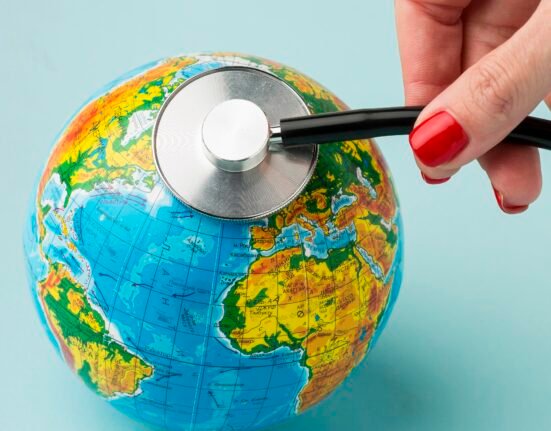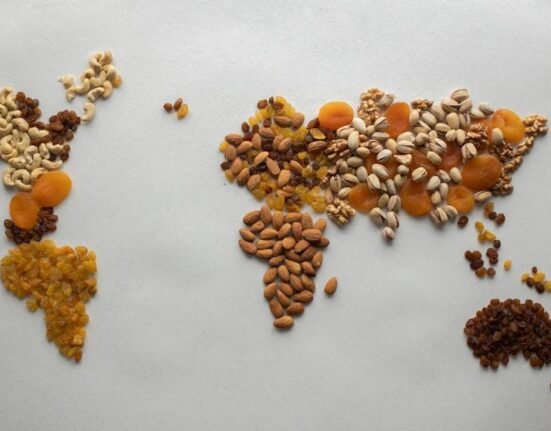Amid the intricate tapestry of global health, maternal well-being stands as a vital thread weaving together the past, present, and future of societies. Across continents and cultures, the journey of motherhood unfolds with diverse challenges and triumphs, shaped by medical advancements, socioeconomic landscapes, and deeply rooted traditions. Exploring maternal health across nations reveals not only the disparities and commonalities in care but also the universal resilience of women and communities striving to nurture the next generation. This article embarks on a thoughtful examination of maternal health worldwide, illuminating the factors that influence it and the paths toward ensuring safer, healthier beginnings for mothers everywhere.
Table of Contents
- Understanding Global Disparities in Maternal Health Outcomes
- Cultural Influences Shaping Maternal Care Practices
- Access to Healthcare Services and Its Impact on Maternal Wellbeing
- The Role of Government Policies in Improving Maternal Health
- Innovative Technologies Enhancing Prenatal and Postnatal Care
- Strategies for Strengthening Community Support Systems for Mothers
- Q&A
- In Summary

Understanding Global Disparities in Maternal Health Outcomes
Across the globe, maternal health outcomes reflect stark contrasts shaped by a matrix of economic, social, and healthcare factors. In high-income countries, access to advanced medical technologies and skilled healthcare professionals significantly reduces maternal mortality rates. Conversely, in many low- and middle-income nations, inadequate healthcare infrastructure, limited prenatal care, and socio-cultural barriers contribute to disproportionately high risks for mothers. Understanding these complex forces requires examining not only clinical data but also the broader determinants that influence a woman’s journey through pregnancy and childbirth.
Key contributors to these disparities include:
- Availability and quality of prenatal and emergency obstetric care
- Educational levels and health literacy among women
- Nutrition and access to clean water and sanitation
- Cultural practices and gender norms affecting healthcare-seeking behavior
- Government policies and investment in maternal health services
| Region | Maternal Mortality Ratio (per 100,000 live births) | Primary Factor | Access to Skilled Birth Attendance (%) |
|---|---|---|---|
| North America | 14 | Advanced Healthcare Systems | 99 |
| Sub-Saharan Africa | 534 | Healthcare Infrastructure | 59 |
| South Asia | 152 | Socio-economic Challenges | 81 |
| Latin America | 68 | Improved Access, Yet Inequity Remains | 88 |

Cultural Influences Shaping Maternal Care Practices
Maternal care is deeply intertwined with the cultural fabric of a society, reflecting beliefs that have been nurtured over generations. Across various regions, traditional practices influence how pregnancy and childbirth are approached, shaping everything from prenatal rituals to postpartum care. In certain communities, for example, the presence of family elders during delivery is considered essential for invoking blessings, while in others, the use of herbal remedies and dietary restrictions plays a crucial role in ensuring the mother’s well-being.
Distinct cultural elements often manifest in unique caregiving customs such as:
- Ritual purification ceremonies following childbirth, symbolizing renewal and health.
- Specific birthing positions guided by ancestral wisdom to ease labor pains.
- Community-based support networks where women share experiential knowledge.
- Postnatal confinement periods encouraging rest and protection of mother and newborn.
| Region | Notable Practice | Cultural Significance |
|---|---|---|
| West Africa | Use of kola nuts | Symbolizes vitality and protection during labor |
| Japan | Satogaeri bunben | Postpartum return to maternal home for care |
| Mexico | Temazcal | Traditional steam bath for purification |

Access to Healthcare Services and Its Impact on Maternal Wellbeing
In many parts of the world, the availability and quality of healthcare services are pivotal determinants of maternal wellbeing. Access to skilled birth attendants, prenatal check-ups, and emergency obstetric care dramatically reduces the risk of complications during pregnancy and childbirth. Beyond medical support, healthcare access ensures women receive crucial education about nutrition, hygiene, and postpartum care, equipping them with the tools to safeguard their health and that of their newborns. Unfortunately, disparities in infrastructure, cultural barriers, and financial constraints often leave vulnerable populations at risk, perpetuating high maternal morbidity and mortality rates.
Key factors influencing maternal health outcomes include:
- Proximity to healthcare facilities: Timely access to hospitals or clinics can save lives during emergencies.
- Availability of trained healthcare professionals: Skilled midwives and doctors are essential for safe deliveries.
- Health education and awareness: Empowering women with knowledge reduces preventable risks.
- Affordability of services: Financial accessibility influences a woman’s decision to seek care.
| Country | Healthcare Access Level | Maternal Mortality Rate* |
|---|---|---|
| Norway | Excellent | 2 per 100,000 |
| India | Moderate | 145 per 100,000 |
| Nigeria | Poor | 512 per 100,000 |
*Maternal Mortality Rate: Number of maternal deaths per 100,000 live births (approximate figures)

The Role of Government Policies in Improving Maternal Health
Government policies act as the backbone for advancing maternal health, shaping how resources are allocated, services delivered, and communities supported. Effective policies prioritize universal access to prenatal and postnatal care, ensuring that no mother is left behind due to socioeconomic barriers. These initiatives often include subsidized healthcare, improved infrastructure for rural clinics, and mandatory training programs for healthcare professionals. Additionally, policies that promote education around maternal nutrition, family planning, and emergency obstetric care directly influence positive outcomes by empowering women with knowledge and timely interventions.
Collaboration between sectors underpins the success of these policies, with governments increasingly integrating social services, health insurance schemes, and community outreach to create comprehensive maternal health support systems. A glance at the following simplified table highlights how select policy measures correlate with maternal health improvements in various regions:
| Policy Measure | Key Focus | Impact |
|---|---|---|
| Free Maternal Healthcare | Cost elimination | Increased clinic visits |
| Rural Health Worker Deployment | Access in remote areas | Reduced maternal mortality |
| Mandatory Parental Leave | Work-life balance | Improved postnatal care |

Innovative Technologies Enhancing Prenatal and Postnatal Care
Advancements in medical technology have revolutionized the way we approach the care of mothers before and after childbirth. From wearable devices that monitor vital signs in real-time to AI-powered ultrasound imaging, these innovations are bridging gaps in accessibility and precision. Smart health trackers equipped with biosensors now allow expectant mothers to keep close tabs on their health metrics, while healthcare providers can intervene promptly based on live data streams. Telemedicine platforms enable regular virtual check-ups, overcoming geographical barriers and ensuring continuous support regardless of location.
Emerging tools go beyond monitoring; they actively enhance maternal well-being through interactive and personalized care. Technologies such as portable fetal monitors and smartphone applications provide educational resources and guidance tailored to each stage of pregnancy. Below is a glimpse of key technologies shaping maternal care:
- AI-powered diagnostics: Ensuring early detection of potential complications
- Virtual reality (VR): Offering relaxation and pain management techniques
- 3D printing: Creating customized prosthetics and anatomical models for prenatal surgeries
- Remote patient monitoring: Facilitating seamless postnatal follow-up care
| Technology | Primary Benefit | Impact Area |
|---|---|---|
| Wearable Biosensors | Continuous monitoring | Early complication detection |
| AI-Enhanced Imaging | Accurate fetal diagnostics | Improved prenatal screening |
| Telehealth Platforms | Expanded access | Remote maternal support |
| VR Pain Management | Non-invasive relief | Labor and postpartum care |

Strategies for Strengthening Community Support Systems for Mothers
Building robust networks of support is essential for enhancing maternal well-being on a community level. One powerful approach involves fostering peer support groups that allow mothers to share experiences, advice, and emotional comfort. These groups can be supplemented by skilled facilitators who offer guidance on health, nutrition, and childcare, creating a safe haven for learning and growth. Additionally, community health workers can be equipped to act as bridges between mothers and local healthcare providers, ensuring timely information dissemination and early intervention when necessary.
Another critical method is to encourage collaboration between various societal sectors such as healthcare institutions, local governments, and non-profits. Through coordinated efforts, communities can develop holistic programs that address diverse maternal needs—from mental health resources to nutritional assistance. Consider the following strategic elements that empower support systems:
- Accessible childcare services to relieve daily pressures for mothers.
- Parenting education workshops tailored to cultural and environmental contexts.
- Local mentorship programs pairing experienced mothers with new ones.
- Community-wide awareness campaigns destigmatizing maternal mental health issues.
| Support Strategy | Primary Benefit | Key Participants |
|---|---|---|
| Peer Support Groups | Emotional Connection | Mothers, Facilitators |
| Health Worker Outreach | Timely Health Access | Community Health Workers, Clinics |
| Cross-sector Partnerships | Comprehensive Resources | Government, NGOs, Healthcare |
| Parenting Workshops | Knowledge Empowerment | Educators, Parents |
Q&A
Q&A: Exploring
Q1: What does “maternal health” encompass?
A1: Maternal health refers to the health of women during pregnancy, childbirth, and the postpartum period. It includes physical, mental, and emotional well-being, as well as access to quality healthcare services that ensure safe pregnancies and deliveries.
Q2: Why is maternal health a critical indicator for nations?
A2: Maternal health reflects broader social determinants such as healthcare quality, education, nutrition, and economic stability. High maternal mortality or morbidity often signals systemic challenges in healthcare infrastructure and social equity.
Q3: How do maternal health outcomes vary between high-income and low-income countries?
A3: Generally, high-income countries report lower maternal mortality rates thanks to advanced medical facilities, trained professionals, and widespread prenatal care. In contrast, low-income nations may struggle with limited resources, leading to higher complications and deaths related to childbirth.
Q4: What are some key factors influencing maternal health disparities across nations?
A4: Influences include healthcare access, cultural practices, education levels, nutrition, transportation infrastructure, and political commitment. For example, rural women in certain regions may face barriers reaching clinics, while sociocultural norms might limit their decision-making autonomy.
Q5: Are there global efforts to improve maternal health?
A5: Yes. Initiatives like the UN’s Sustainable Development Goals aim to reduce maternal mortality worldwide. Organizations collaborate to improve healthcare training, expand community awareness, and ensure equitable access to maternal services.
Q6: Can technology bridge gaps in maternal health across different countries?
A6: Absolutely. Telemedicine, mobile health apps, and portable diagnostic tools provide remote support and timely interventions. These innovations help overcome geographical and resource constraints, making maternal care more accessible.
Q7: What role do education and empowerment play in maternal health?
A7: Education equips women with knowledge about pregnancy, nutrition, and hygiene, enabling better health decisions. Empowered women can advocate for their rights and access services confidently, leading to healthier outcomes for themselves and their children.
Q8: How does maternal mental health fit within the broader discussion?
A8: Mental health is integral, as pregnancy and postpartum periods can involve anxiety, depression, or stress. Many countries are increasingly recognizing and addressing these challenges along with physical health to support holistic maternal well-being.
Q9: What can individuals do to support global maternal health improvements?
A9: Supporting organizations focused on maternal care, spreading awareness, advocating for equitable policies, and respecting cultural contexts all contribute positively. Every effort helps move toward a world where motherhood is safer and more supported everywhere.
Q10: What is the overarching message about maternal health across nations?
A10: Maternal health is a universal human right and a cornerstone of healthy societies. While challenges vary, the goal remains the same worldwide: ensuring every mother experiences a safe, informed, and dignified journey through pregnancy and childbirth.
In Summary
As we draw the curtain on this exploration of maternal health across nations, it becomes clear that the journey toward safer pregnancies and healthier mothers is as diverse as the cultures that shape it. While challenges persist globally, the tapestry of innovation, tradition, and resilience weaves a hopeful narrative—one where shared knowledge and collaborative action hold the promise of nurturing life, no matter the geography. In embracing both the nuances and common threads of maternal care, the world moves closer to a future where every mother’s story is marked not by struggle alone, but by strength, support, and well-being.















Leave feedback about this